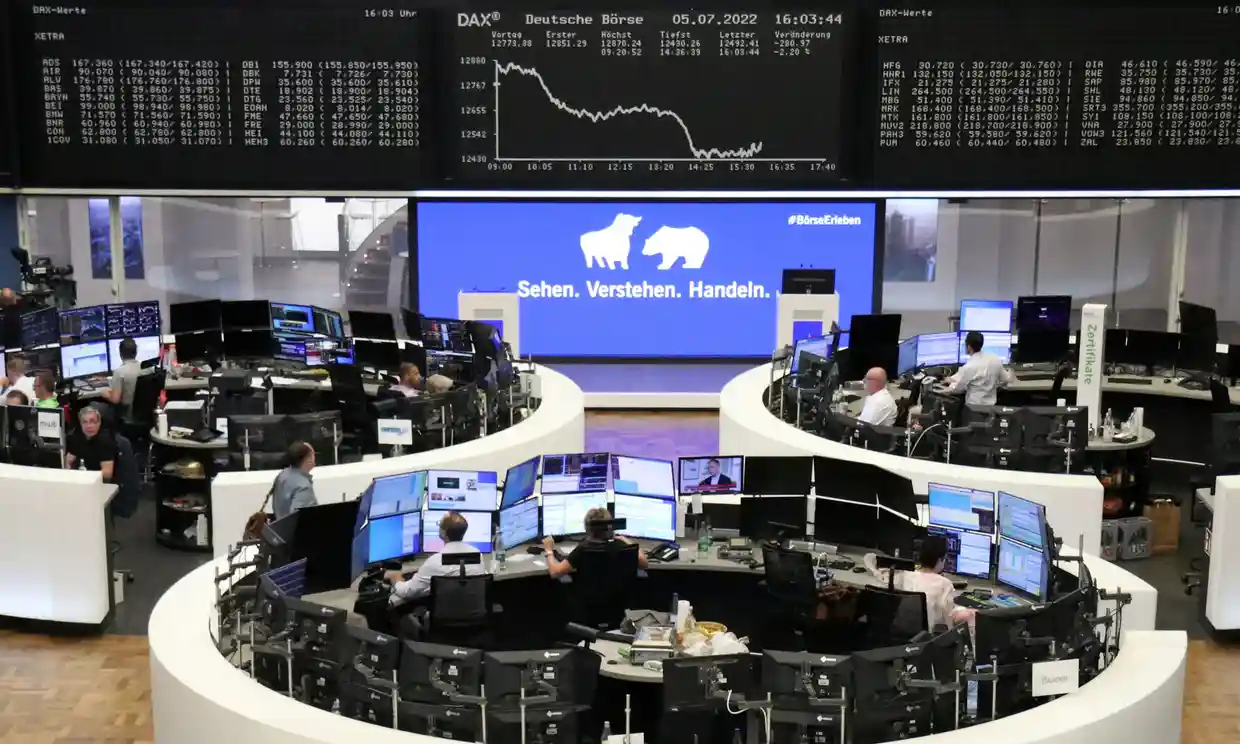LONDON (Parliament Politics Magazine) – Stock markets were rattled by growing concerns about a possible European recession on Tuesday as the euro sank to lowest in two decades and the pound hit its lowest level since the beginning of the pandemic.
As the pressure on the European economy grew due to an increase in natural gas costs, shares fell in London and throughout Europe.
The single currency versus the US dollar dropped by 1.5 percent to $1.026, the lowest since late 2002. The pound fell to a two year low, below the $1.20 level to $1.193, the lowest level since March 2020 against the dollar.
As concerns about a recession increased, the price of oil also fell. Brent crude fell 6% to below $107 per barrel, its lowest since mid-May.
In London, where the FTSE 100 share index fell 182 points or 2.5 percent in afternoon trading, mining stocks, oil producers, and airlines were among the major decliners. While BP and Shell sank by 6%, Anglo American and Glencore lost 7%.
Both the French CAC and the German DAX index decreased by roughly 2.4%.
Investors fear that rate increases by central banks frantically trying to combat skyrocketing inflation may cause economies to enter a recession. Analysts have warned that further disruptions to Russian energy supplies could also lead to a downturn in Europe.
Everyone was searching for the inflation peak, but they were likely at the point where it was most problematic because it was getting sticky, according to Markets.com’s Neil Wilson.
High and persistent inflation was the worst kind since it indicated that expectations had become unstable. The Federal Reserve and other central banks would only be encouraged to inflict more suffering as a result, he added.
Concerns about the economy’s future were increased by a rise in natural gas prices on Tuesday when strike action prompted Norway’s Equinor to close three oil and gas fields.
According to Raffi Boyadjian, the lead financial analyst at XM, the panic had crept back in on Tuesday when a fresh spike in natural gas prices shattered the unsettling quiet.
Fears that Europe’s energy crisis was set to get much worse caused the euro to tumble below the $1.03 mark and fall to its lowest level since late 2002. A strike on many gas fields in Norway was adding to supply concerns, in addition to the possibility that Russia would cut off gas supplies to Germany and other European importers, Boyadjian said.
A survey of purchasing managers stated, the eurozone’s business growth has been sluggish to a 16-month low as manufacturing output has decreased and the cost of living issue has reduced consumer spending on services.
As traders returned to their desks after the Fourth of July holiday, stocks dipped in New York. Early trading saw a 2% decline in the S&P 500 index, which had already fallen by 20% in the first six months of the year.
Tuesday saw a decline in the yield, or interest rate, on UK, US, and eurozone government bonds as worries about economic growth reduced risk appetite and boosted demand for safer assets.





